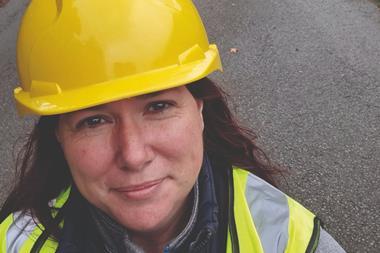At a recent roundtable on the proptech agenda convened by housing minister Kit Malthouse, I was asked to give an overview of some of the challenges. Encapsulating the issues outlined below was a challenge in itself!

Property and technology are two entirely different sectors. Property is seen as staid and set in its ways, while tech is by its nature innovative and disruptive. Property is seeing huge disruption as it is challenged on all sides by rapid tech advances. One of our biggest challenges is to encourage collaboration between the two, rather than allowing tech to disintermediate the property sector.
Real collaboration requires property leaders to agree that sharing data is good for the industry, and this is an industry not used to, or incentivised to, collaborate. To overcome resistance, the benefits of sharing data need to be demonstrated.
Real estate isn’t known for being at the cutting edge of innovation. Brendan Wallace, co-founder of American VC fund Fifth Wall, recently told me in an interview: “Real estate is an industry that sat on the sidelines for two decades’ worth of innovation. They more or less missed the entire internet and all of mobile.”
Is this a harsh assessment? Perhaps, but attitudes are changing.

We need to manage expectations as there won’t be ‘magic bullet’ solutions and change won’t happen overnight. People need to understand that, for the most part, change will be incremental. Also, the property sector has underinvested in R&D for many years, especially compared with other sectors. That needs to change.
There also needs to be more clarity around what the customer wants – whether it’s what is possible using new methods of offsite construction or simply how we can speed up house purchase transactions. As Henry Ford famously remarked: “If I had asked people what they wanted they would have asked for faster horses!” Customers don’t always know what they want and we need to lead the way.
Is the property sector being forward-thinking enough or are we going for “faster horses”? For instance, are we tracking what’s going on above our buildings? Is the advent of drone deliveries going to need super highways in the sky and if so should we be doing more to legislate for air rights?
Lost in Translation, the BPF-commissioned Future Cities Catapult report on how tech can enhance real estate productivity, flags up the language gap between proptech and real estate that needs to be addressed. According to FUTURE: PropTech, there are circa 6,000 proptech start-ups. They will need to understand what property companies want from them.
With all the disruption from outside the sector, it is heartening that some of the innovation is coming from within. At Pi Labs, a number of portfolio companies have real estate industry founders, including Realise, Urban Intelligence, Keepsite, Appraised, PropCoin and Blyng.
A great example of real estate innovation is Coyote, an acquisition pipeline and asset management platform for commercial real estate spun out of M7 Real Estate by Oli Farago. Coyote was developed to solve the pain points of operating a property firm.
Former office agent Freddie Pritchard-Smith has set up Savvy, an app and web-based platform that allows landlords to collect building use data. And Realla, a commercial property listings portal set up by Andy Miles, formerly at British Land, has already been snapped up by Costar.
Have we reached a tipping point as we move from talking about tech to distilling the problems and matching them up with tech solutions?
































No comments yet